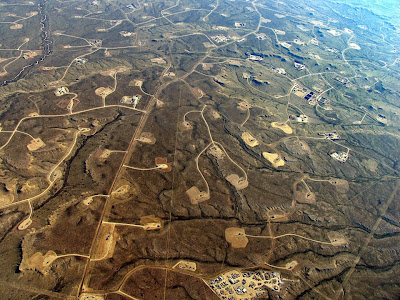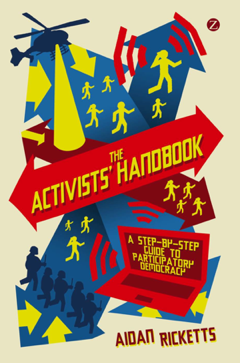- Home
- Commentary
- Navigating disinformation, uncertainty, individualism and the poison apple of conspiracy
- If nothing changes nothing will change: the Voice referendum
- What can we learn from disaster communities?
- New year, a time to embrace the uncertainty of it all
- We could be non-binary
- Adaptive resilience vs safety paternalism
- Left wing, right wing? What just happened to politics?
- Covid, class and the addiction to certainty
- Neoliberalism, the Life World and the Psychopathic Corporation
- Democracy is about our bodies, not just our minds
- What’s your motivation: is it yourself or the change you’re making?
- Mind over matter: The world of abstraction is driving us to destruction
- The real threats to our liberty and survival
- Avoiding the abyss of conspiracy theories
- The difference between a legal system and a fantasy novel
- What’s a conspiracy and what’s just common garden variety corruption?
- Unpredictability, humility and an emerging anthropandemic
- The trilemma – climate change, economic collapse, and rising fascism
- Happy New Normal for the decade ahead
- Fires, liars and climate deniers
- The race to the bottom in australian politics
- Talking about lock-on devices – an article in ‘The Conversation’
- The Ponzi scheme is teetering
- Regenerative culture a key part of the blockade experience
- Staying sane in the late Anthropocene
- Extinction Rebellion
- Major parties have failed on climate, it’s time to rebel.
- Elections In The Late Anthropocene
- It is the Greens that are defeating the Nats and it’s all about your preferences
- Australia’s powerhouse of democracy and innovation is in the Northern Rivers
- Is identity politics a problem for the left?
- The climate emergency and the awful state of Australian politics
- Democracy and rights under threat in corporate police state
- Liberty, freedom and civil rights? Do any of us understand these things anymore.
- The forest wars are back, time to mobilise
- …more commentary
- Workshops
- News & Events
- Media
- A Flood of Emotions – Sydney Ideas Event
- Participatory democracy in the COVID era – SCU podcast
- Activism educator Aidan Ricketts explains how and why protests can be peaceful
- Bob Brown Is Taking “Shocking” Anti-Protest Laws To The High Court
- Anti protest laws could arrest nannas, seize tractors
- “They blinked first”
- Colin Barnett quick to protest against ‘activism degrees’ – The Australian, 16/10/2014
- ‘Degrees in activism’ put brake on growth – The Australian, 15/10/2014
- Magistrate throws out vexatious police case against CSG protesters
- Outrage over school PR ‘by stealth’- The Northern Star
- CSG clash a certainty
- Communities use new tactics
- Gas group attacks lecturer
- …more media
- Activist Resources
- Reviews
The politics of ‘extreme energy’- the bigger picture

Our local battle against invasive industrial gasfields is part of a mining pandemic that has communities across the state, nationally and globally fighting for their survival. In the UK, the phenomena is called the politics of ‘extreme energy’, which describes how fossil fuel industries have been driven into desperate overreach as the end of fossil economy approaches. Whether driven by scarcity (as in the case of oil) or by the need to simply replace coal with renewables, there is a desperation in the sector that is driving a pandemic of invasive mining.
In NSW we see it in the form of a desperate bid to mine and export as much coal as possible before the carbon bubble bursts, as well as the extreme haste with which gas mining is being progressed without environmental safeguards.
Here in NSW, we can see the effects of the extreme energy pandemic all around us. Communities have lost faith in government and multiple spot fires have now broken out across the state. As this is being written over 100 people are blockading sites at Leards state forest near Gunnedah to halt an extremely large and destructive coal mine. At the Pilliga local farmers and traditional owners are united in a protest camp and planned blockades against Santos coal seam gas projects. Near Gloucester, the community is fighting to prevent widespread fracking of agricultural lands. The coal mining pandemic has communities fighting in the Bylong valley, Bulga and the Southern Highlands, and closer to home toxic antinomy mines are proposed for the Mid-North Coast and Afterlee (near Kyogle).
The great tragedy in all this madness is that governments are actually complicit in imposing extreme energy politics on their populations. Regardless of which major party is in power it seems the mining corporations are the ones in control.
The current NSW government’s record speaks volumes.
In Fullerton Cove the community took the gas miners to court and the NSW government joined as a party in court and attempted to have the community saddled with both side’s legal costs. When the tiny town of Bulga took on Rio Tinto in court and won their case to stop a mine extension, the government not only backed an appeal against the decision but worse still used its parliamentary numbers to force through a change to the law to make sure such cases can’t succeed again. They have actually amended the law to require courts in future to place the value of the mining resource above other considerations such as social and environmental impacts.
Both the state and federal government have been vicious in their attacks on the Environmental Defenders Office (EDO), explicitly in an attempt to prevent the EDO from providing legal assistance to embattled communities facing mining projects.
When the major parties are really ‘miner’ parties, and when all reasonable avenues for legal challenge are being extinguished, communities have few options left. This is why a new alliance of farmers, business people, local government, traditional owners and environmentalists has emerged that represents the real face of democracy during the extreme energy pandemic.
Nonviolent civil disobedience is the most basic underpinning of democracy, if you think about it deeply enough it’s how we got democracy, it’s how the suffragettes gained the vote, it’s how Gandhi and Luther King achieved so much for their people. When injustice becomes law resistance becomes duty. We would rather we didn’t have to go there but we are left with no choice.
So as we prepare for the coming challenges at Bentley we need to remember that we are part of a wider historic movement to re-invigorate a struggling Australian democracy that has been compromised by the politics of the extreme mining pandemic, we stand together with communities across the state who simply want to protect their way of life and to be heard by a government that can represent the people.
This article was originally published in the Northern Rivers Echo.
One Response to The politics of ‘extreme energy’- the bigger picture
Leave a Reply to peter westheimer Cancel reply
This site uses Akismet to reduce spam. Learn how your comment data is processed.
Recent Posts
- Navigating disinformation, uncertainty, individualism and the poison apple of conspiracy
- If nothing changes nothing will change: the Voice referendum
- What can we learn from disaster communities?
- New year, a time to embrace the uncertainty of it all
- We could be non-binary about a lot more than gender
I like these sites
Community Organisations
- Code Green Tasmania
- CSG Free Northern Rivers
- Friends of the Earth Melbourne
- Generation Alpha
- Huon Valley Environment Centre
- Lock the Gate Alliance
- Nature Conservation Council NSW
- North Coast Environment Council
- North East Forest Alliance
- Plan to Win
- Rainforest Information Centre
- Save our Foreshore
- Still Wild Still Threatened
- The Change Agency
- The Wilderness Society








hi Aiden we met briefly in Mullum. As I’ve had local govmt experience am suggesting a brief chat regarding options to maintain site presence at Bentley. Excellent thoughts/essays.. Peter